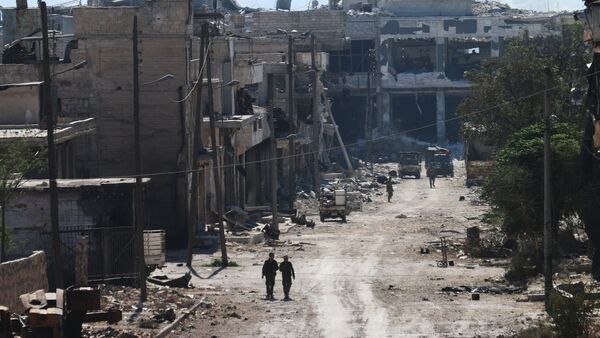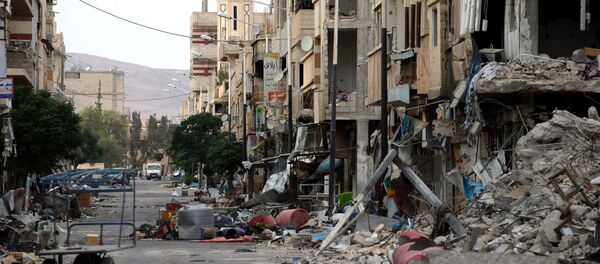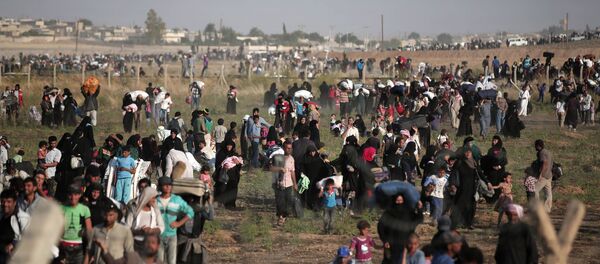After the conflicts end the IMF and the international community will be asked to contribute to economic reconstruction in the region. Thus, the IMF prepared a study on the current economic problems and ways to deal with them in the post-conflict era, Lagarde wrote in an article for Le Huffington Post.
The author highlighted three main aspects of the issue.
First, economic costs of the conflict are tremendous.
"In addition to tragic human losses and material damages, conflicts in Iraq, Libya, Syria and Yemen have increased already high unemployment and poverty rate. They have also erased progress in development for entire generation. For example, in 2013, 52 percent of Syrian kids did not attend school, and life expectancy dropped from 76 to 56 years," the article read.
The Syrian war has halved the country’s GDP from pre-war levels in 2010. In May 2015, inflation jumped to 300 percent. In 2015, Yemeni GDP dropped by 25-35 percent.
According to IMF estimates, if the Syrian economy grows 4.5 percent a year it will take over 20 years to restore GDP to 2010 levels.
"The conflicts cross borders and have consequences in bordering countries, like Jordan, Lebanon, Tunisia and Turkey. These countries have faced a wide range of challenges, including refugees, security issues and social tensions. All of the above have impact on state institutions and their ability to implement reforms," Lagarde wrote.
Furthermore, she outlined measures that would help limit the consequences of the conflicts. It is crucial to preserve key administrative financial institutions, including fiscal agencies and central banks. Wartime experience proves that they are crucial because they maintain salaries and healthcare for people.
Conflicts also result in macroeconomic instability, including increasing budget and foreign imbalances, because central banks play an important role in financing economic activities in such countries as Yemen and Libya, the article read. This results in increasing inflation rate and shrinking currency reserves.
Finally, foreign partners, including the IMF, should help the countries withstand the conflicts and overcome the aftermath. These measures should include additional finances for countries accepting refugees, humanitarian and development programs for the war-ravaged countries as well as direct financial aid and cheap loans.





